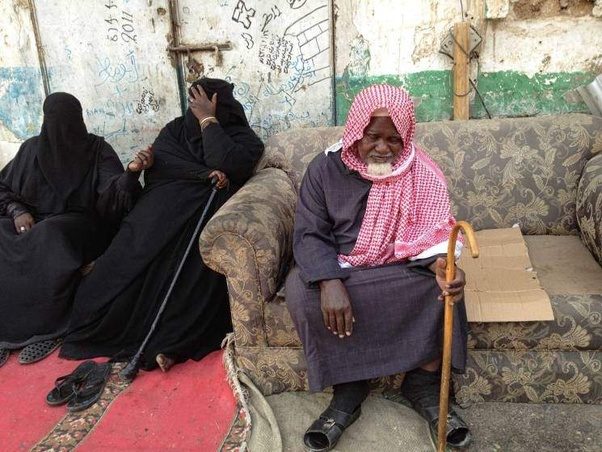
RNA - Despite the fact that Saudi Arabia is the world’s largest oil producer with daily production of over 10 million barrels, many people in the Persian Gulf Arab state are living in poverty. Huge military purchases, including a $110 billion arms deal with the US, ambitious projects like Crown Prince bin Salman's high-tech city dubbed Neom, struggling to promote Saudi Arabia as a strong and wealthy monarchy, and lavish trips of thr Royal family members are hiding genuine conditions of life of the Saudi people. In fact, such a de luxe picture of the kingdom only displays the comfort of life of the Saudi royals to the world from which a true image of the subterranean poverty and unemployment of the ordinary people is withheld.
The Bloomberg news agency, which specializes in the economics, on February 15 published a report on the 2018 worst-off economies. The Saudi Arabian economy was among them, with its “misery value” reaching 15/4 in the current year from the 12/5 in 2017. The news agency’s report made it clear that the country’s economy has become the 10th most miserable economy in 2018, exacerbation from its 14th rank of 2017. But how the home circumstances of the oil-wealthy monarchy substantiate these figures?
Poverty
One of the most significant indicators of every society’s social conditions is the level of the nation’s poverty' however, the case is different when it comes to Saudi Arabia as it is hardly possible to get precise data on the case. There is a consensus among the world’s economists that it is impossible to get an accurate report on the status of poverty in the absolutely-ruled kingdom. Lack of transparency makes any available statistics somehow approximate. Some reports suggest that Saudi Arabia is home to five million people living below the poverty line. While the regime released official figures last year that put poverty rate at 12.5 percent, allocating $7 billion to tackle the problem signals that the real rates are far higher than the stated figures. Additionally, the ministry of social affairs maintains that 1.5 million Saudi citizens are annually using social security services, which in fact include the regime’s help with living expenses. This, some analysts argue, is another indicator that the poverty rate is much higher that released by the regime.
Unofficial reports published in 2003 held that nearly 13 percent of the Saudi Arabia’s people lived under the poverty line. Some sources in the same year questioned the veracity of those reports and put the figure at 25 percent. The Washington Post newspaper in a report in 2017 pointed out that between 1 and 4 million of the Saudis lived on less than $530 per month, adding that the regime very well hid the growing challenge of poverty. Meanwhile, the Shiite-majority areas of the kingdom, mainly in the eastern parts of the country, are struggling with the highest rates of poverty in comparison to other areas. After the Eastern Province, other poorest regions are consecutively Asir, Najran, and Jizan border provinces.
The challenge is mainly blamed on the regime’s focusing on economic boost of the country’s central parts that has led to unbalanced growth in the kingdom. The minister of finance and planning of Saudi Arabia in 2013 reported that 60 percent of the Saudis owned homes. This, from an opposite angle, means that 40 percent of the people are yet to have own homes due to rising poverty. Some figures, however, raise doubts about the validity of the regime-released figures, arguing that the rate could touch 40 percent.
Unemployment
Another factor that reflects a society's economical status is the unemployment rates. In this case, too, there is poor accuracy of data published by the regime which practically hampers any genuine analysis of the employment rates. Statistics issued by the official Saudi institutions held that in the first quarter of 2017, the unemployment rate in the kingdom was 12.7 percent. The same data show that the highest rates were in the predominately Shiite-inhabited Eastern Province. But the non-Shiite cities and provinces also wrestle with high rates of joblessness. In the Al-Jawf Region in the north of the country, for example, the rates were put at 22.6 percent, in Medina 21.2 percent, in Jizan 17.5 parent, in Ha’il 16.8 percent, and in the capital Riyadh 11.6 percent. Many experts believe that if accurate and uncensored economic examinations are likely, the joblessness rates are much higher than the state-published figures.
As the population of Saudi Arabia increases, so do the poverty, unemployment, and inflation rates. General Authority for Statistics has recently noted that the population hit 32.6 million in the first half of 2017, meaning that the country added some 870,000 to the population compared to the year before. Details of the report said that from this figure, 20.4 million, or 63 percent, are Saudi citizens and 12.2 million, or 37 percent, are non-Saudis living in the country. All these figures suggest that the misery value will keep rising for the upcoming years.
Saudi Arabia besides its wealthy face has another one reflecting the ordinary people’s poverty and unemployment and the economy’s inflation. People’s life is deeply victimized by the profligacy of some 7,000 Al Saud royals. For years, the princes have been holding various posts in the country, among them some 200 from ruling Saudi families who held key state positions, and 6000 others holding exclusive posts. This distribution of positions makes the wealthy and large country look like their personal property. Over the course of past 15 decades power and wealth has passed from one generation of Saudi royals to the other generation, depriving people of their right to decide their fate. Misdistribution of power and wealth has immersed the nation into massive poverty.
Source: Alwaght
847/940